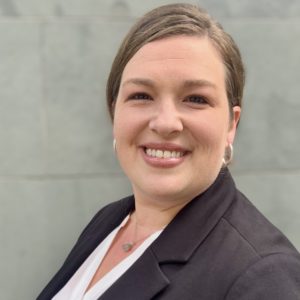How to Ensure Memory Care Staff Receive Quality, Ongoing Training
Staff training is essential to ensure that you’re able to provide residents with quality care. While staff might complete training sessions, the training process is never truly done. Embracing an ongoing training approach can help staff better provide care, and residents stand to benefit from this focus on ongoing training.
Why Ongoing Training Matters

Kimberly Keane, program development director at Noah Homes
Kimberly Keane, program development director at Noah Homes, explains that ongoing training is essential in memory care settings. “I feel that most individuals that come into the field of care providing come in because they have the heart and want to take care of this population,” she says. “For them to be successful, it’s important they have a high level of training, especially as we move into the needs of individuals experiencing dementia.
“I believe a higher level of training leads to a higher level of care for those individuals, because if you truly understand the person and the diagnosis, you have tools in your toolbox to provide personalized care to those you’re supporting.”
Keane explains that staff need to have an understanding of both the person and their diagnosis. “I feel it’s really important that staff understand what’s happening with the individuals so they don’t take behaviors personally,” she explains. If caregivers have a negative interaction with a resident, they may feel like they have failed in some way. Ongoing training can thus give caregivers multiple tools they can use in these situations.
Strategies for Developing Quality Memory Program Training
In addition to state-mandated memory care training, it’s important for care providers to develop a solid understanding of what residents are going through and to have the ability to empathize with individuals. “That’s often not accomplished with just an instructional component,” Keane says. She recommends a hands-on training component, such as group exercises, which often become a sort of mini support group for caregivers who discuss their experiences and share actions that have worked.
Heidi Royter, chief operating officer at Solterra Senior Living, notes that additional trainings include the CARES dementia training program, TEEPA Snow’s Dementia Training, and monthly interactive videos through dementia care programs.

Heidi Royter, chief operating officer at Solterra Senior Living
Royter explains that a memory care program can also develop their own in-house training program. The process should start with a team member who becomes a certified dementia trainer, and who also becomes familiar with programs like CARES and TEEPA. “You should first design the program, then create and develop training materials, and implement the rollout of the program and a training schedule,” says Royter.
Keane encourages any facility that wants to develop an in-house training program to get feedback from their providers, and to develop a baseline understanding of the staff’s current skillset. Surveying staff can provide insight into the challenges that staff face, and it also gives staff a chance to suggest training topics that would be helpful to them. “Pre- and post-assessments are critical to gauging effectiveness,” says Keane. “With a pre-assessment before the training, you can see where the skill set is and design the curriculum around the gaps.”
She also highlights the importance of developing multidimensional programs. “I think that an instructional component is critical, as well as something that’s hands-on to get participants active and involved in the material. Peer discussion toward the end is ideal to create real-time feedback of what’s been happening at a facility or with individual residents. Participants can also share tools and technology that have been successful.”
Choosing a Third-Party Training Option
There are also many third-party training programs available for memory care facilities, but it’s important to choose the program that’s right for your needs. “It’s important when assessing programs that your organization knows what the goal is for the program” says Royter. “You should ask peers in the industry for informal feedback, as well as references from the companies you’re considering. When speaking to the references, ask what their goals were by implementing this training program, what the team’s reaction was, and if they have seen engagement with staff increase and if the level of care has increased. Also, ask if the results of the training are what they were promised.”
Keane encourages facilities to look for trainings offered by vendors who have experience working with those affected by memory care issues. “If you’re working with an organization that also cares for individuals, it’s likely that they’re updating their program content constantly with new information and real experiences from working with the population.” She suggests asking the vendor about the methods they use to assess their training. “Make sure it’s being evaluated not just by customers, but also by individuals who are writing the curriculum,” she says. “Ask what kind of reports the vendor can provide to the facility once the training is complete, so you can gauge the effectiveness with your own staff.”
Looking to the Long-Term
Implementing an ongoing, long-term training approach is only the first step. It’s also equally important to maintain that program. “Often, you find that programs roll out and after the excitement is gone, the program fades away,” Royter says. “All programs need to be top of mind and discussed and reviewed regularly. “
Keane notes that providing quality, ongoing training can be a valuable investment in staff retention. “I feel that working to provide training for staff is really important, now even more so than ever with the constant turnover in our field,” she says. “Through training, care providers get the tools and resources that they can put into practice, and it leads to more positive interactions between individuals receiving support and care providers. If you can retain your staff through higher training, they get to know the individuals even more and for longer. Those long-term relationships are what makes care providing so special.”

Paige Cerulli is a contributing writer to i Advance Senior Care.
Related Articles
Topics: Alzheimer's/Dementia , Featured Articles , Resident Care , Surveys , Training











